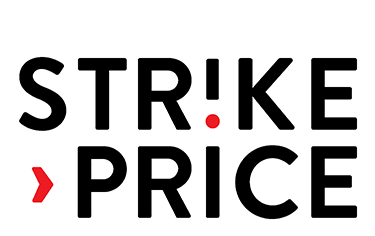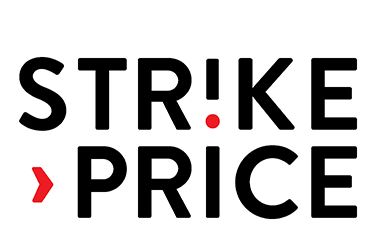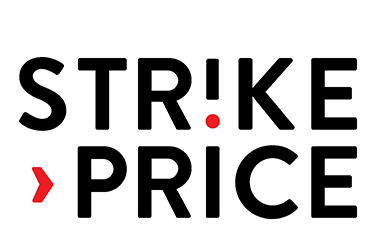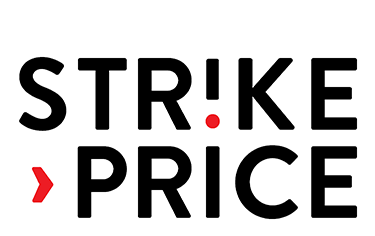› A STRIKE PRICE KFt. DISCLOSURE
on the operation of the company’s internal whistleblowing system
- What is the internal whistleblowing system for?
Within the framework of the internal abuse reporting system, Strike Price Limited Liability Company (hereinafter referred to as the “Company”) provides the possibility to report information about illegal or suspected illegal acts, omissions or other abuses of the Company in accordance with the provisions of Act XXV of 2023 on complaints, public interest reporting and rules related to the reporting of abuses (hereinafter referred to as the “Complaints Act”).
- What can be reported through the abuse reporting system?
Information about any unlawful or suspected unlawful act or omission or other misconduct in relation to the Company.
- Who can make a report?
You can make a complaint under the Complaints Act in the abuse reporting system:
- a person employed by the Company,
- an employee who has ceased to be employed by the Company,
- a person who wishes to establish an employment relationship with the Company and for whom the procedure for the establishment of such a relationship has been initiated,
- the sole proprietor, the sole proprietorship, if it has a contractual relationship with the Company,
- a person who holds an ownership interest in the Company and a person who is a member of the Company’s administrative, management or supervisory body, including a non-executive director,
- any contractor, subcontractor, supplier or person under the supervision and control of a trustee who has initiated a procedure for establishing a contractual relationship with the Company, or who is or has been in a contractual relationship with the Company,
- trainees and volunteers working for the Company,
- a person who wishes to enter into a legal relationship or a contractual relationship with the Company in accordance with paragraphs d) e) and g) of this section, and in respect of whom the procedure for the establishment of such a legal relationship or contractual relationship has been initiated, and
- a person who has ceased to have a legal or contractual relationship with the Company pursuant to paragraphs d) e) and g) of this section.
For the purposes of the above, an employment relationship is any legal relationship in which the employee performs an activity for and under the direction of the Company for consideration or performs self-employment. An employee is a natural person who performs an activity for and under the control of the Company in the context of an employment relationship for consideration or who carries out an activity for his/her own account.
- Where and how to report?
Notifications can be made to the whistleblower protection lawyer appointed by the Company in writing, by e-mail, by telephone or by appointment at the office of the whistleblower protection lawyer in person at the following contact details:
The whistleblower protection lawyer
- name: Dr. Bernadett Csige, lawyer
- office address/postal address: 4024 Debrecen, Vár u. 2. 1. floor. 3.
- telephone number: +36 70 422 7254
- e-mail address: [email protected]
If the whistleblower makes the report by post or e-mail, it is recommended that the envelope or the subject of the e-mail message should contain the words “Report abuse”.
The whistleblower protection lawyer
- receive notifications relating to the Company’s activities,
- provide legal advice to the notifier on how to file a notification,
- maintains contact with the whistleblower, and may request information and clarification from him/her, if necessary, in order to investigate the whistleblowing,
- may cooperate in the conduct of an investigation initiated on the basis of a notification, as the Company may provide; and
- upon request, inform the notifier in writing of the events relating to the notification, in particular the outcome of the investigation initiated on the basis of the notification, the action taken by the Company or the refusal to conduct an investigation.
- Can the whistleblower remain anonymous?
The notifier has the right to make his/her notification in an unidentifiable way, but this may give rise to the following:
- under the Complaints Act, the investigation of an anonymous complaint may be waived by the Company.
- in the absence of a decision not to investigate, if the information provided by the notifier is not sufficient to allow the investigation of the notification to be carried out or to be concluded effectively, the investigation may be closed without result.
- if the contact details of the applicant are not provided, the whistleblower protection lawyer will not be able to provide him/her with information on the procedure.
If the whistleblower does not make the report anonymously, the whistleblower protection lawyer will not transmit any data that would allow the identification of the whistleblower to the Company, unless the whistleblower has consented in writing to the transmission of his or her personal data.
- What happens after the notification?
Within 7 days of receipt of a written or e-mail notification, the whistleblower protection lawyer will send an acknowledgement of the notification to the notifier.
The whistleblower protection lawyer will, depending on whether the whistleblower has consented in writing to the transfer of his or her personal data, forward the notification or an extract thereof to the Company.
The Company shall appoint an independent, impartial and independent person or persons (investigating team) to investigate the notification (hereinafter referred to as the “Investigator”).
The Investigator will investigate the notification as soon as circumstances allow, but no later than 30 days after receipt.
The time limit for the investigation may be extended in particularly justified cases, but the time limit for investigating the notification and informing the notifier of the outcome of the investigation shall not exceed 3 (three) months. The whistleblower protection lawyer shall inform the notifier of the extension of the time limit, the reasons for the extension and the expected date of the investigation.
If necessary, in order to investigate the notification, the notifier may be asked to provide further information or clarification, failure to provide which does not prevent the procedure from being carried out, but the lack of the information necessary to investigate the notification may render the investigation ineffective.
During the investigation, the whistleblower protection lawyer shall, at the request of the whistleblower, inform the whistleblower of the events relating to the whistleblowing.
After the investigation procedure is completed, the whistleblower protection lawyer will inform the whistleblower of the outcome of the investigation and of the action taken by the Company or the refusal to conduct the investigation.
If the whistleblower has provided e-mail contact details, the whistleblower protection lawyer will contact the whistleblower primarily by e-mail, unless the whistleblower expressly indicates otherwise.
- When can the investigation of a notification be waived?
The investigation of the notification may be waived under the Complaints Act if.
- the notification was made by an unidentified notifier,
- the notification was not made by an authorised person as defined in point 3 of this Notice,
- the application is a repeat application by the same applicant with the same content as the previous application, or
- the harm to the public interest or to an overriding private interest would not be proportionate to the restriction of the rights of the natural or legal person concerned by the notification resulting from the investigation of the notification.
- What are the consequences of reporting in bad faith?
If it has become apparent that the whistleblower has communicated false data or information in bad faith and
(a) where there are indications that a criminal offence or irregularity has been committed, the personal data must be handed over to the authority or person responsible for the procedure,
(b) there are reasonable grounds for believing that he or she has caused unlawful damage or other legal harm to another person, his or her personal data must be disclosed to the body or person entitled to initiate or conduct the proceedings, at the request of that person.
- How does the Company handle the personal data of whistleblowers?
A separate information notice on the processing of the personal data of the notifiers by the Company is available at https://strike-price.com/weboldalának 3 .
The identity of the notifier, if he/she provides the data necessary to establish it, shall be kept confidential at all stages of the investigation by the investigators and by the persons assisting in the investigation. The whistleblower protection lawyer shall not disclose the whistleblower’s personal information to the Company unless the whistleblower has given his or her written consent.
- What protection is available to the notifier if the notification is lawfully made?
According to § 41 of the Complaints Act, any measure that is detrimental to the whistleblower,
- which is due to the lawful making of the notification and
- is made in connection with a legal relationship or connection as defined in point 3 of this Notice,
is unlawful even if it would otherwise be lawful.
Adverse measures include acts or omissions detrimental to the whistleblower, such as suspension, collective redundancies, dismissal or equivalent measures, premature termination or cancellation of a contract for goods or services (a detailed list is provided in Section 41 of the Complaints Act).
Any adverse action taken against an entity owned by the notifier or an entity having an employment relationship or other contractual relationship with the notifier, which is taken because the notification was lawfully made, is unlawful even if it would otherwise be lawful.
Where a whistleblower has made a lawful disclosure, the whistleblower will not be considered to have breached a restriction on disclosure of a legally protected secret or other legal restriction on disclosure of information and will not be liable for such a disclosure if the whistleblower had reasonable grounds to believe that the disclosure was necessary to disclose the circumstances to which the disclosure relates, i.e. that the whistleblower had no other means of resolving the misuse.
Where a notification has been lawfully made, the notifier shall not be liable for obtaining or having access to the information contained in the notification, unless the notifier has committed a criminal offence by obtaining or having access to the information.
The notifier cannot be held liable for lawfully making the notification if the notifier had reasonable grounds to believe that the notification was necessary to disclose the circumstances covered by the notification.
The notifier may rely on the above in any official or judicial proceedings, provided that he proves that the notification was lawfully made.
The State shall provide the notifier with the assistance provided for in Act LXXX of 2003 on Legal Aid under the conditions set out therein. Under the legal aid scheme, socially disadvantaged persons can obtain professional legal advice and procedural representation in legal proceedings to enforce their rights and resolve their disputes. Detailed information on the forms of assistance and the conditions for accessing them can be found at
kormanyhivatalok.hu/
kormanyhivatalok/
budapest/megye/jogi-segitesnyujtas-es-partfogo-ugyvedi-kepviselet
and
https://igazsagugyiinformaciok.
kormany.hu/jogi-segitsegnyujtas
or obtained from the Metropolitan and County Government Offices.
- When is it legal to make a notification?
The notification is lawful if
- the whistleblower has made the report through one of the whistleblowing systems under the Whistleblowing Act, in accordance with the rules set out in the Whistleblowing Act,
- the notifier has obtained the notified information concerning the circumstances covered by the notification in the context of his or her employment-related activities, including information obtained in the course of the procedure for the establishment of an employment relationship, and
- the notifier had reasonable grounds to believe that the information notified concerning the circumstances covered by the notification was true at the time of notification.
A notification shall be deemed to have been lawfully made if the notifier makes the notification to the European Union institutions, bodies, offices or agencies having the tasks and powers, and the conditions referred to in points (b) and (c) above are fulfilled.
- When is the applicant entitled to protection under the law and when is he not?
The protection under the Complaints Act, with the exception of legal aid, is only available to the whistleblower if.
(a) the information notified concerning the circumstances covered by the notification falls within the scope of the European Union acts listed in Annex 1 or Annex 2 to the Complaints Act or the legal provisions ensuring their implementation and compliance with them; or
(b) the applicant has reasonable grounds to believe that the circumstances referred to in point (a) exist.
The protection under the Act, with the exception of legal aid, is not available to the applicant if.
(a) by notifying it, it breaches the rules on the protection of classified information,
(b) fails to comply with the obligation of confidentiality laid down by law in respect of medical confidentiality and legal professional privilege when making the notification,
(c) in making the notification, fails to comply with the obligation of professional secrecy imposed on him or her by his or her profession as a member of a religious person or religious association performing religious rites,
(d) in making the notification, infringes the rules on the protection of confidential information protected by law in connection with judicial proceedings,
(e) by reporting it, you are in breach of the rules on data management under the rules of criminal procedure; or
f) as a member of the law enforcement agencies, the Military National Security Service or the National Tax and Customs Administration, violates the rules on the activities of these agencies as laid down by law.
For further details, see §§ 41-49 of the Complaints Act.
- Clause
This information is intended to fulfil the Company’s obligations under the Complaints Act and is not a substitute for knowledge of the relevant legal provisions. Please read the detailed rules before making a complaint. The legislation is available free of charge in the National Legislation (https://njt.hu/) or, if you have any questions, please contact the Company’s whistleblowing lawyer using one of the contact details indicated in section 4 of this Prospectus.
- Annex 1: Definitions of terms
For the purposes of this Policy, the following definitions shall apply:
whistleblowing: any communication made by a whistleblower through the Company’s abuse reporting system in which the whistleblower reports information about abuse in relation to the Company through the abuse reporting system. If the Company establishes for its employees rules of conduct protecting the public interest or overriding private interests under the conditions set out in Article 9(2) of Act I of 2012 on the Labour Code (hereinafter referred to as “Labour Code”), any violation of such rules may also be reported through the internal abuse reporting system.
whistleblower: a person as defined in point 3 of the Prospectus who makes a report through the Company’s whistleblowing system.
misuse: an unlawful or suspected unlawful act, omission or other abuse. If the Company lays down rules of conduct for its employees that protect the public interest or overriding private interests under the conditions set out in Act I of 2012 on the Labour Code, the violation of such rules shall also constitute abuse.
whistleblowing system: an internal system established and operated by the Company under which information about abuse may be reported by persons who are authorised to report it.
› A STRIKE PRICE KFt. TÁJÉKOZTATÓJA
a társaság belső visszaélés-bejelentési rendszerének működésével kapcsolatosan
- Mire szolgál a belső visszaélés-bejelentési rendszer?
A belső-visszaélés bejelentési rendszer keretében a Strike Price Korlátolt Felelősségű Társaság (a továbbiakban: Társaság) biztosítja a Társaság jogellenes vagy jogellenesnek feltételezett cselekményével, mulasztásával, illetve egyéb visszaélésekkel kapcsolatos információk bejelentésének lehetőségét a panaszokról, a közérdekű bejelentésekről, valamint a visszaélések bejelentésével összefüggő szabályokról szóló 2023. évi XXV. törvény (a továbbiakban: Panasz tv.) előírásaival összhangban.
- Mit lehet bejelenteni a visszaélés-bejelentési rendszeren keresztül?
A Társasággal kapcsolatos jogellenes vagy jogellenesnek feltételezett cselekményre vagy mulasztásra, illetve egyéb visszaélésre vonatkozó információt.
- Ki tehet bejelentést?
A visszaélés-bejelentési rendszerben a Panasz tv. alapján bejelentést tehet:
- a Társaság által foglalkoztatott személy,
- az a foglalkoztatott, akinek a Társaságnál fennálló foglalkoztatásra irányuló jogviszonya megszűnt,
- a Társasággal foglalkoztatásra irányuló jogviszonyt létesíteni kívánó olyan személy, aki esetében e jogviszony létesítésére vonatkozó eljárás megkezdődött,
- az egyéni vállalkozó, az egyéni cég, ha a Társasággal szerződéses kapcsolatban áll,
- a Társaság tekintetében tulajdonosi részesedéssel rendelkező személy, valamint a Társaság ügyviteli, ügyvezető, illetve felügyelő testületéhez tartozó személy, ideértve a nem ügyvezető tagot is,
- a Társasággal szerződéses kapcsolat létesítésére vonatkozó eljárást megkezdett, szerződéses kapcsolatban álló vagy szerződéses kapcsolatban állt vállalkozó, alvállalkozó, beszállító, illetve megbízott felügyelete és irányítása alatt álló személy,
- a Társaságnál tevékenységet végző gyakornok és önkéntes,
- a Társasággal a jelen pont d) e) és g) bekezdései szerinti jogviszonyt vagy szerződéses kapcsolatot létesíteni kívánó olyan személy, aki esetében e jogviszony vagy szerződéses kapcsolat létesítésére vonatkozó eljárás megkezdődött, és
- az a személy, akinek a jelen pont d) e) és g) bekezdései szerinti jogviszonya vagy szerződéses kapcsolata a Társasággal megszűnt.
A fentiek alkalmazásában foglalkoztatásra irányuló jogviszonynak minősül minden olyan jogviszony, amelyben a foglalkoztatott a Társaság részére és annak irányítása alatt ellenérték fejében tevékenységet végez vagy önmaga foglalkoztatását végzi. Foglalkoztatottnak minősül az a természetes személy, aki a Társaság számára és annak irányítása alatt foglalkoztatásra irányuló jogviszony keretében, ellenérték fejében tevékenységet végez vagy önmaga foglalkoztatását végzi.
- Hol és hogyan lehet bejelentést tenni?
Bejelentés a Társaság által megbízott bejelentővédelmi ügyvédnél tehető meg írásban, e-mailben, telefonon illetőleg előzetes időpont egyeztetést követően a bejelentővédelmi ügyvéd irodájában személyesen az alábbi elérhetőségeken:
A Bejelentővédelmi ügyvéd
- neve: Dr. Csige Bernadett ügyvéd
- irodájának címe/postacíme: 4024 Debrecen, Vár u. 2. 1. em. 3.
- telefonszáma: +36 70 422 7254
- e-mail címe: [email protected]
Amennyiben a bejelentő a bejelentést postai úton vagy e-mail üzenet formájában jelenti be, ajánlott a borítékon, illetve az e-mail üzenet tárgyában feltüntetni a következőt: „Visszaélés bejelentése”.
A bejelentővédelmi ügyvéd
- fogadja a Társaság tevékenységével összefüggő bejelentéseket,
- jogi tanácsadást nyújt a bejelentőnek a bejelentés megtételével kapcsolatban,
- kapcsolatot tart a bejelentővel, tőle a bejelentés kivizsgálása érdekében szükség esetén tájékoztatást, felvilágosítást kérhet,
- a Társaság rendelkezése szerint közreműködhet a bejelentés alapján indult vizsgálat lefolytatásában, és
- kérésére írásban tájékoztatja a bejelentőt a bejelentéssel kapcsolatos eseményekről, különösen a bejelentés alapján indult vizsgálat eredményéről, a Társaság által megtett intézkedéséről vagy a vizsgálat lefolytatásának elutasításáról.
- Maradhat-e anonim a bejelentő?
A bejelentő jogosult a bejelentését azonosíthatatlan módon megtenni, ennek folytán azonban az alábbiak merülhetnek fel:
- a Panasz tv. alapján az anonim bejelentés kivizsgálása a Társaság által mellőzhető.
- a kivizsgálás mellőzésének hiányában, amennyiben a bejelentő által megadott adatok nem elegendők a bejelentése kivizsgálásához, illetve annak eredményes lefolytatásához, úgy a vizsgálat eredménytelenül kerülhet lezárásra.
- ha a kapcsolattartásra alkalmas elérhetőségét a bejelentő nem adja meg, úgy részére az eljárással kapcsolatban a bejelentővédelmi ügyvéd nem tud tájékoztatást nyújtani.
Amennyiben a bejelentő a bejelentést nem anonim módon teszi meg, a bejelentővédelmi ügyvéd ilyen esetben sem továbbít a bejelentő azonosítását lehetővé tevő adatot a Társaság felé kivéve, ha a bejelentő a személyes adatai továbbításához írásban hozzájárult.
- Mi történik a bejelentést követően?
A bejelentővédelmi ügyvéd az írásbeli, illetve e-mail útján érkezett bejelentés kézhezvételétől számított 7 napon belül a bejelentés megtételéről visszaigazolást küld a bejelentő számára.
A bejelentővédelmi ügyvéd – attól függően, hogy a bejelentő a személyes adatai továbbításához írásban hozzájárult-e – a bejelentést, illetőleg annak kivonatát továbbítja a Társaság számára.
A bejelentés kivizsgálására a Társaság független, befolyástól mentes és pártatlan személyt vagy személyeket (vizsgáló csoportot) jelöl ki (a továbbiakban: Vizsgáló).
A Vizsgáló a bejelentést a körülmények által lehetővé tett legrövidebb időn belül, de legfeljebb annak beérkezésétől számított 30 napon belül kivizsgálja.
A kivizsgálásra nyitva álló határidő különösen indokolt esetben meghosszabbítható, azonban a bejelentés kivizsgálásának és a bejelentőnek a kivizsgálás eredményéről történő tájékoztatásának határideje ebben az esetben sem haladhatja meg a 3 (három) hónapot. A határidő meghosszabbításáról, annak indokairól és a kivizsgálás várható időpontjáról a bejelentővédelmi ügyvéd tájékoztatja a bejelentőt.
Szükség esetén, a bejelentés kivizsgálása érdekében további tájékoztatás, illetőleg felvilágosítás kérhető a bejelentőtől, amely megadásának elmulasztása az eljárás lefolytatásának ugyan nem akadálya, azonban a bejelentés kivizsgálásához szükséges adatok hiánya a vizsgálat eredménytelenségét vonhatja maga után.
A bejelentővédelmi ügyvéd a vizsgálat lefolytatása alatt a bejelentő kérésére tájékoztatja a bejelentőt a bejelentéssel kapcsolatos eseményekről.
A vizsgálati eljárás befejezését követően a bejelentővédelmi ügyvéd tájékoztatja a bejelentőt a vizsgálat eredményéről, valamint a Társaság által megtett intézkedésekről vagy a vizsgálat lefolytatásának elutasításáról.
Amennyiben a bejelentő megadta az e-mail elérhetőségét, a bejelentővédelmi ügyvéd – a bejelentő kifejezett eltérő rendelkezésének hiányában – elsődlegesen e-mailen keresztül tartja a kapcsolatot a bejelentővel.
- Mikor mellőzhető a bejelentés kivizsgálása?
A bejelentés kivizsgálása a Panasz tv. alapján mellőzhető, ha
- a bejelentést azonosíthatatlan bejelentő tette meg,
- a bejelentést nem a jelen Tájékoztató 3. pontjában meghatározott erre jogosult személy tette meg,
- a bejelentés ugyanazon bejelentő által tett ismételt, a korábbi bejelentéssel azonos tartalmú bejelentés, illetve
- a közérdek vagy a nyomós magánérdek sérelme a bejelentésben érintett természetes személy, illetve jogi személy jogainak a bejelentés kivizsgálásából eredő korlátozásával nem állna arányban.
- Mik a rosszhiszemű bejelentés következményei?
Ha nyilvánvalóvá vált, hogy a bejelentő rosszhiszeműen, valótlan adatot vagy információt közölt és
a) ezzel bűncselekmény vagy szabálysértés elkövetésére utaló körülmény merül fel, személyes adatait az eljárás lefolytatására jogosult szerv vagy személy részére át kell adni,
b) alappal valószínűsíthető, hogy másnak jogellenes kárt vagy egyéb jogsérelmet okozott, személyes adatait az eljárás kezdeményezésére, illetve lefolytatására jogosult szervnek vagy személynek kérelmére át kell adni.
- Hogyan kezeli a Társaság a bejelentők személyes adatait?
A bejelentők személyes adatainak a Társaság általi kezelésével kapcsolatban külön tájékoztató ad felvilágosítást, amely adatkezelési tájékoztató Társaság https://strike-price.com/weboldalának 3-as pontjában érhető el.
A bejelentő személyazonosságát – ha az annak megállapításához szükséges adatokat megadja – a vizsgálat valamennyi szakaszában bizalmasan kezelik a vizsgálatot lefolytató és a vizsgálatban közreműködő személyek. A bejelentővédelmi ügyvéd kizárólag akkor hozhatja a Társaság tudomására a bejelentő személyes adatait, ha ahhoz a bejelentő írásban hozzájárult.
- Milyen védelem jár a bejelentőnek a bejelentés jogszerű megtétele esetén?
A Panasz tv. 41. § -a alapján minden, a bejelentő számára hátrányos intézkedés,
- amelyre a bejelentés jogszerű megtétele miatt kerül sor és
- amelyet a jelen Tájékoztató 3. pontjában meghatározott jogviszonnyal vagy kapcsolattal összefüggésben valósítanak meg,
jogellenesnek minősül akkor is, ha egyébként jogszerű lenne.
Hátrányos intézkedésnek minősül a bejelentő számára hátrányos cselekmény vagy mulasztás, így többek között a felfüggesztés, a csoportos létszámcsökkentés, a felmondás vagy ezekkel egyenértékű intézkedések, az áru- vagy szolgáltatási szerződés idő előtti megszüntetése vagy felmondása (részletes felsorolás a Panasz tv. 41. §-ában található).
Minden, a bejelentő tulajdonában álló jogalany vagy a bejelentővel foglalkoztatásra irányuló jogviszonyban vagy más, szerződéses jogviszonyban álló jogalany sérelmére hozott hátrányos intézkedés, amelyre a bejelentés jogszerű megtétele miatt kerül sor, jogellenesnek minősül akkor is, ha egyébként jogszerű lenne.
A bejelentés jogszerű megtétele esetén a bejelentő nem tekinthető a törvény által védett titok nyilvánosságra hozatalával összefüggő korlátozást vagy más, az információfelfedésre vonatkozó jogszabályi korlátozást megszegőnek, és az ilyen bejelentés tekintetében nem terheli felelősség, ha a bejelentő alapos okkal feltételezte azt, hogy a bejelentés szükséges volt a bejelentéssel érintett körülmények feltárásához, azaz más lehetősége nem volt arra a bejelentőnek, hogy a visszaélés megoldódjon.
A bejelentés jogszerű megtétele esetén a bejelentőt nem terheli felelősség a bejelentésben szereplő információk megszerzése vagy az azokhoz való hozzáférés tekintetében, kivéve, ha a bejelentő az információk megszerzésével vagy az azokhoz való hozzáféréssel bűncselekményt követett el.
A bejelentő a bejelentés jogszerű megtételéért nem vonható felelősségre, ha a bejelentő alapos okkal feltételezte azt, hogy a bejelentés szükséges volt a bejelentéssel érintett körülmények feltárásához.
A bejelentő a fentiekre valamennyi hatósági vagy bírósági eljárás során – a bejelentés megtétele jogszerűségének bizonyítása mellett – hivatkozhat.
Az állam a bejelentő részére a jogi segítségnyújtásról szóló 2003. évi LXXX. törvényben meghatározott támogatásokat biztosítja az ott meghatározott feltételek szerint. A jogi segítségnyújtás keretében a szociálisan hátrányos helyzetben lévők szakszerű jogi tanácsot, a perben eljárásjogi képviseletet kaphatnak jogaik érvényesítése, jogvitáik megoldása során. A támogatások formáiról és igénybevételük feltételeiről részletes tájékoztatás a
kormanyhivatalok.hu/
kormanyhivatalok/budapest/megye/
jogi-segitesnyujtas-es-partfogo-ugyvedi-kepviselet
és a
igazsagugyiinformaciok.kormany.hu/
jogi-segitsegnyujtas
weboldalakon olvasható vagy a fővárosi és megyei kormányhivataloknál kérhető.
- Mikor jogszerű a bejelentés megtétele?
A bejelentés megtétele jogszerű, ha
- a bejelentő a bejelentését a Panasz tv. szerinti visszaélés-bejelentési rendszerek valamelyikén, a Panasz tv.-ben meghatározott szabályok szerint tette meg,
- a bejelentő a bejelentéssel érintett körülményekre vonatkozó, bejelentett információt a munkavégzéssel kapcsolatos tevékenységével összefüggésben szerezte – ideértve a foglalkoztatásra irányuló jogviszony létesítésére irányuló eljárás során megszerzett információt is –, és
- a bejelentő alapos okkal vélelmezte, hogy a bejelentéssel érintett körülményekre vonatkozó, bejelentett információ a bejelentés időpontjában valós volt.
Jogszerűen megtett bejelentésnek kell tekinteni, ha a bejelentő a bejelentését a feladat- és hatáskörrel rendelkező európai uniós intézményeknél, szerveknél, hivataloknál vagy ügynökségeknél teszi meg, és a fentebb hivatkozott b) és c) pontok szerinti feltételek teljesülnek.
- Mikor illeti meg a törvény szerinti védelem a bejelentőt és mikor nem?
A Panasz tv. szerinti védelem – a jogi segítségnyújtással kapcsolatos támogatások kivételével – kizárólag akkor illeti meg a bejelentőt, ha
a) a bejelentéssel érintett körülményekre vonatkozó, bejelentett információ a Panasz tv. 1. mellékletben, illetve a 2. mellékletben szereplő európai uniós jogi aktusok vagy azok végrehajtását, az azoknak való megfelelést biztosító jogszabályi rendelkezések hatálya alá tartozik, vagy
b) a bejelentő az előbbi a) pont szerinti körülmény fennállását alapos okkal feltételezi.
A törvény szerinti védelem – a jogi segítségnyújtással kapcsolatos támogatások kivételével – nem illeti meg a bejelentőt, ha
a) bejelentésével a minősített adatok védelmére vonatkozó szabályokat megszegi,
b) a bejelentés megtétele során törvényben meghatározott, az orvosi titokra, az ügyvédi titokra vonatkozó titoktartási kötelezettségének nem tesz eleget,
c) a bejelentés megtétele során az egyházi személy és a vallási egyesület vallásos szertartást hivatásszerűen végző tagjaként a hivatásánál fogva rá irányadó titoktartási kötelezettségének nem tesz eleget,
d) a bejelentés megtétele során a bírói ítélkezéssel kapcsolatban a törvény által védett titok védelmére vonatkozó szabályokat megszegi,
e) bejelentésével a büntetőeljárási szabályok szerinti adatkezelési szabályokat megszegi, vagy
f) a rendvédelmi szervek, a Katonai Nemzetbiztonsági Szolgálat, illetve a Nemzeti Adó- és Vámhivatal állományának a tagjaként a bejelentésével az e szervek tevékenységére vonatkozó, jogszabályban meghatározott szabályokat megszegi.
További részleteket a Panasz tv. 41-49. §-ai tartalmaznak.
- Záradék
A jelen tájékoztató a Társaság Panasz tv.-ben foglalt kötelezettségei teljesítése céljából készült és nem helyettesíti a vonatkozó jogszabályi rendelkezések ismeretét. Kérjük, hogy bejelentésének megtétele előtt tájékozódjon a részletes szabályokról. A jogszabályok ingyenesen elérhetőek Nemzeti Jogszabálytában (https://njt.hu/) vagy kérdés esetén vegye fel a kapcsolatot a Társaság bejelentővédelmi ügyvédjével a Tájékoztató 4. pontjában megjelölt elérhetőségek valamelyikén keresztül.
- számú melléklet: Fogalom meghatározások
A jelen Tájékoztató alkalmazásában irányadó főbb fogalmak a következők:
bejelentés: a Társaság visszaélés-bejelentő rendszerén keresztül a bejelentő által megtett minden olyan közlés, amelyben a bejelentő a Társaság vonatkozásában visszaélésre vonatkozó információt jelent be a visszaélés-bejelentési rendszeren keresztül. Amennyiben a Társaság a munkavállalóira a munka törvénykönyvéről szóló 2012. évi I. törvény (a továbbiakban: Mt.) 9. § (2) bekezdésében meghatározott feltételekkel a közérdeket vagy nyomós magánérdeket védő magatartási szabályokat állapít meg, ezek megsértése a belső visszaélés-bejelentési rendszerben szintén bejelenthető.
bejelentő: a Tájékoztató 3. pontjában meghatározott személy, aki a Társaság visszaélés-bejelentési rendszerén keresztül bejelentést tesz.
visszaélés: jogellenes vagy jogellenesnek feltételezett cselekmény, mulasztás, illetve egyéb visszaélés. Amennyiben a Társaság a munkavállalóira a munka törvénykönyvéről szóló 2012. évi I. törvényben meghatározott feltételekkel a közérdeket vagy nyomós magánérdeket védő magatartási szabályokat állapít meg, úgy ezek szabályok megsértése is visszaélésnek minősül.
visszaélés-bejelentő rendszer: a Társaság által létrehozott és működtetett belső rendszer, amelynek keretében visszaélésére vonatkozó információ jelenthető be a bejelentésre jogosult személyek által.




